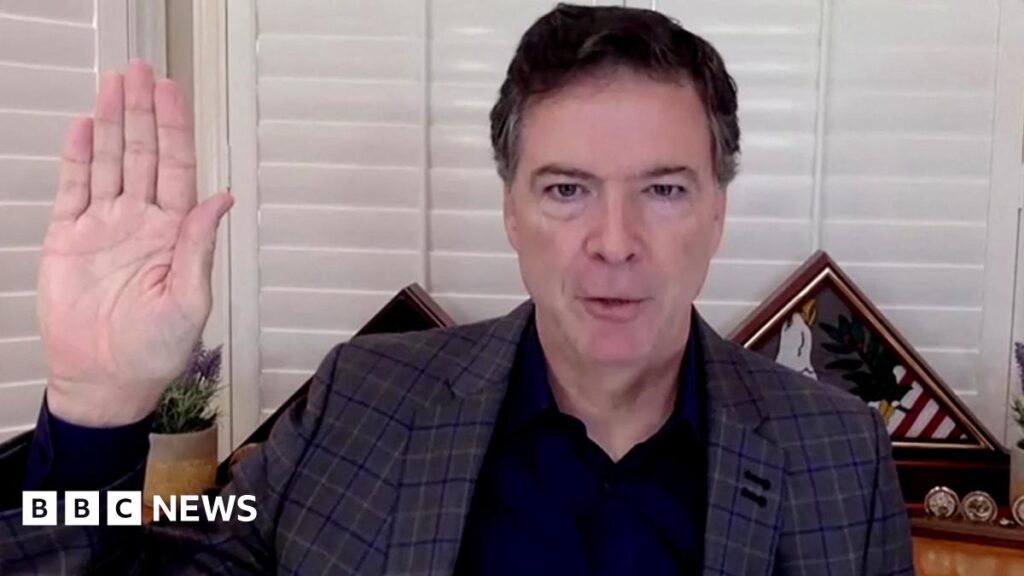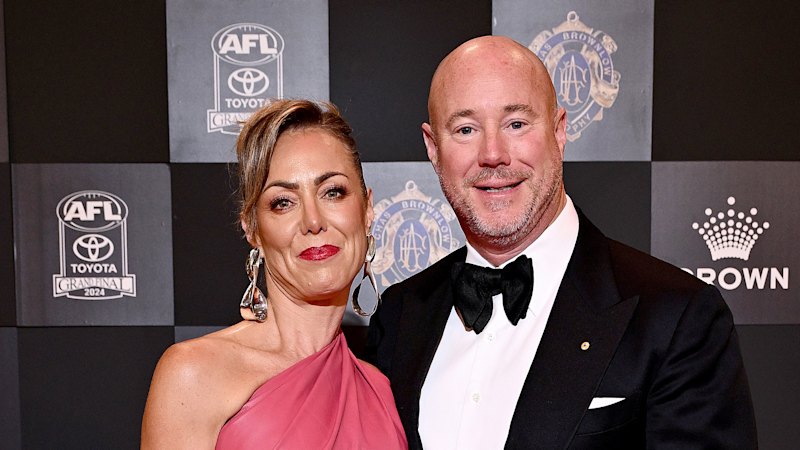
James Comey, the former FBI Director, has been indicted on two charges, marking a historic moment as he becomes the first former head of the bureau to face criminal charges. The indictment, announced this week, accuses Comey of making false statements and obstructing justice during his 2020 testimony to the Senate Judiciary Committee. The charges stem from his alleged unauthorized disclosure of sensitive information to the media.
The announcement comes shortly after Lindsey Halligan, a former defense attorney for President Donald Trump, assumed her role as the interim US Attorney for the Eastern District of Virginia. Halligan, who took office earlier this week, swiftly moved to present the case to a grand jury, which agreed there was sufficient evidence to proceed with prosecution.
Political Tensions and Legal Implications
The indictment of Comey has intensified the already charged political atmosphere. President Trump, a long-time critic of Comey, reacted to the news on his Truth Social platform, labeling Comey as “one of the worst human beings” and celebrating the indictment as “JUSTICE IN AMERICA!” Trump’s statement underscores his ongoing campaign to hold Comey accountable for what he perceives as past wrongdoings.
Meanwhile, prominent Democrats have expressed concern over the motivations behind the indictment. Virginia Senator Mark Warner criticized the move, suggesting it reflects an attempt by Trump to weaponize the justice system against his critics. Warner pointed to the recent resignation of Erik Siebert, the former top federal prosecutor in Virginia, who reportedly stepped down over concerns of being forced out for not pursuing charges against Comey.
Expert Opinions and Reactions
Virginia Senator Tim Kaine described the indictment as a “malicious prosecution,” arguing that it represents a dangerous abuse of power. “I’ve had my differences with James Comey in the past, but I can spot trumped-up charges a mile away,” Kaine stated, emphasizing the need for the rule of law to prevail.
In contrast, FBI Director Kash Patel defended the indictment, asserting that it demonstrates the FBI’s commitment to accountability. “For far too long, previous corrupt leadership and their enablers weaponized federal law enforcement,” Patel wrote, promising that “no one is above the law.”
Background on James Comey
James Comey served as the FBI Director from 2013 until his dismissal in 2017, a mere four months into President Trump’s first term. His tenure was marked by controversy, particularly during the 2016 presidential election when he announced a reopening of the investigation into Hillary Clinton’s private email server just days before the election. This move drew criticism from both political parties at different times.
Following his dismissal, which Trump attributed to Comey’s handling of the Russia investigation, Comey became a vocal critic of the Trump administration. He has since been a polarizing figure, with supporters lauding his integrity and detractors accusing him of partisanship.
Legal and Political Ramifications
The indictment of a former FBI director is unprecedented and raises significant questions about the intersection of politics and justice. Attorney General Pam Bondi, responding to the indictment, reiterated the Justice Department’s commitment to holding those in power accountable. “Today’s indictment reflects this Department of Justice’s commitment to holding those who abuse positions of power accountable for misleading the American people,” Bondi stated.
President Trump’s influence over the Justice Department has been a point of contention, with critics arguing that his calls for investigations into political adversaries undermine the independence of the judiciary. In a recent social media post, Trump urged Bondi to pursue charges against Comey and other perceived political enemies, reflecting his ongoing pressure on the department.
As the legal proceedings against Comey unfold, the case will likely continue to draw national attention, highlighting the broader debates over justice, accountability, and the rule of law in the United States.






